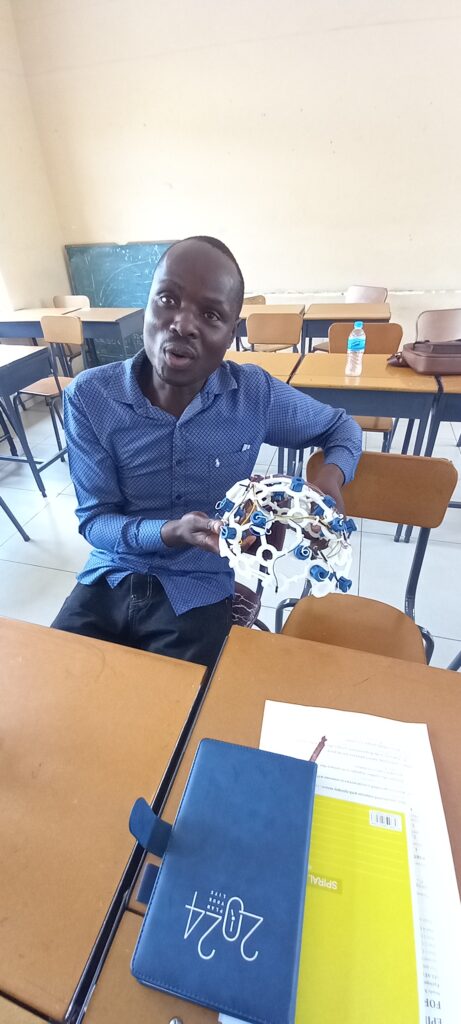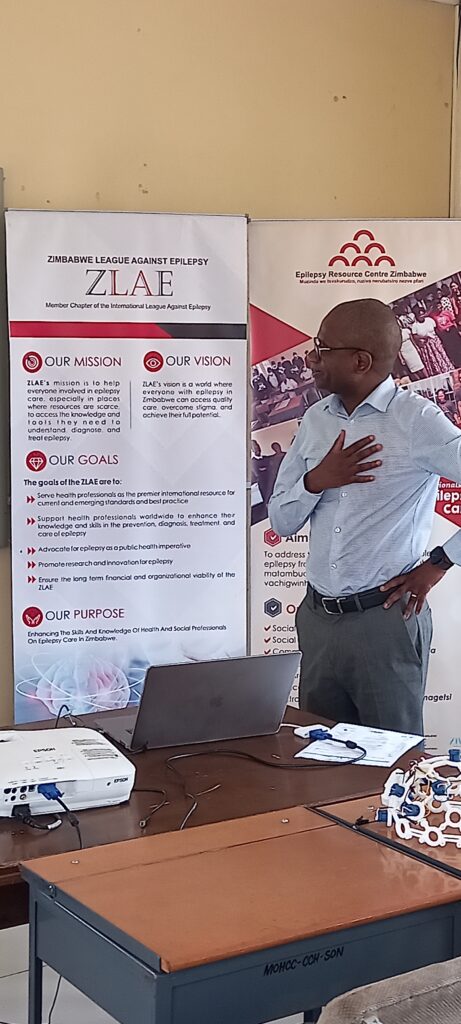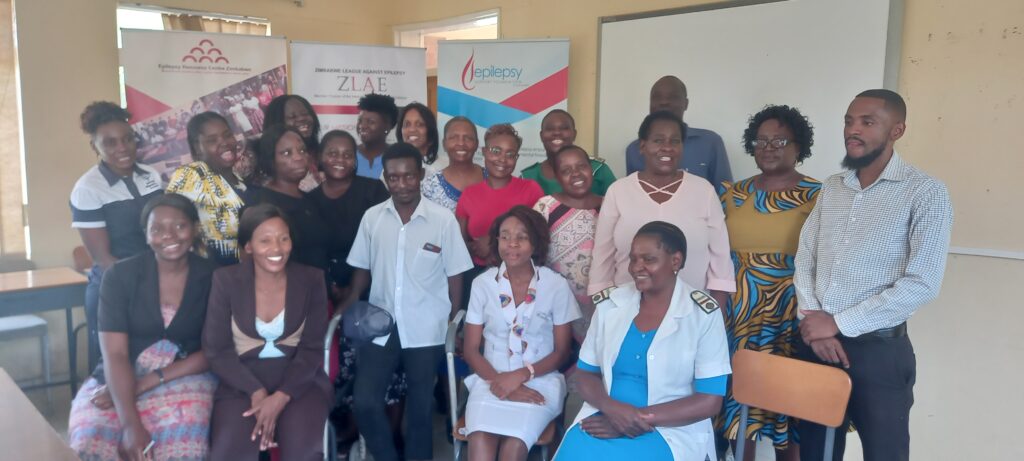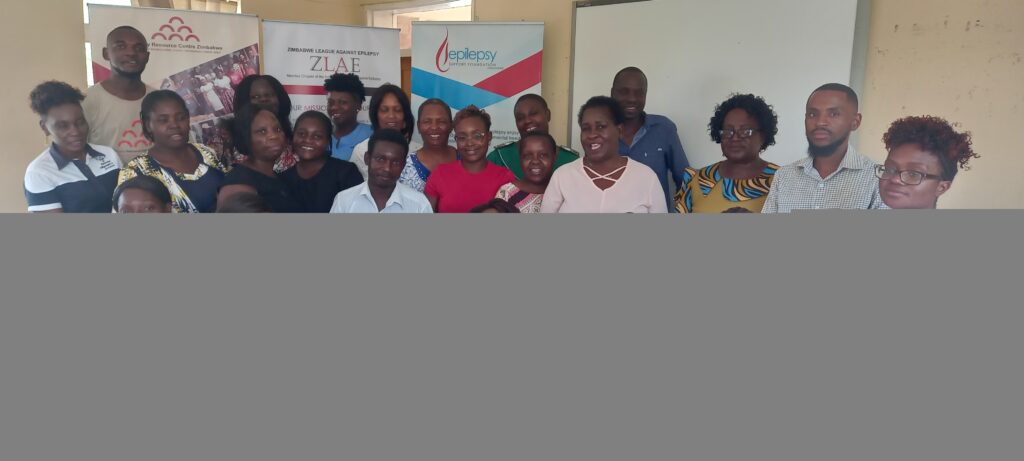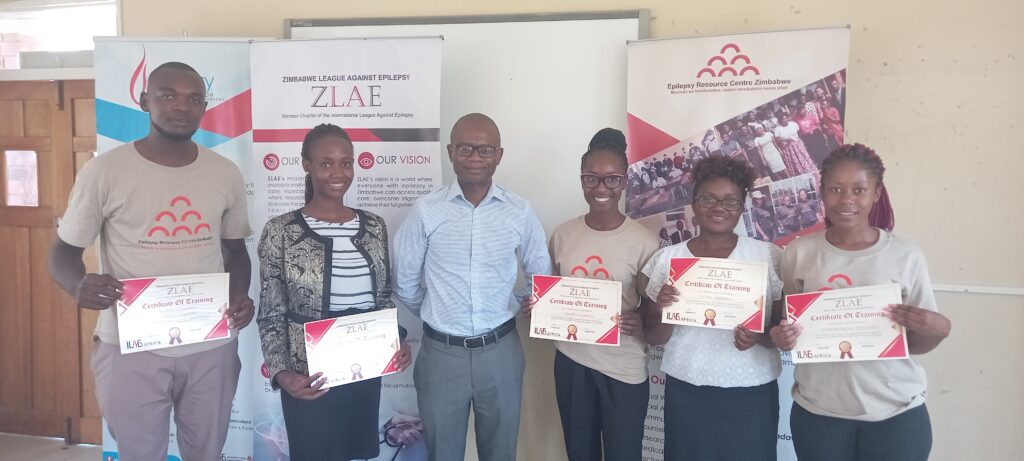
Training Nurses, General Medical Officers (GMOs), and Allied Health Workers (AHW) on epilepsy
(Name of training in Shona language: Kuvandudza ruzivo neunyanzvi hwana Chiremba, Mukoti neVashandi Vanotsigira Utano nezve pfari)
Purpose of Training
This initiative, sponsored by the International League Against Epilepsy (ILAE) Africa Region and in collaboration with key partners such as the Zimbabwe League Against Epilepsy (ZLAE), Epilepsy Resource Centre Zimbabwe (ERCZ), College of Primary Care Physicians of Zimbabwe (CPCPZ), and Epilepsy Support Foundation (ESF), aims to bridge knowledge gaps about epilepsy in Zimbabwe. Objectives include providing essential skills to healthcare professionals, focusing on childhood and selected adult forms of epilepsy, technological advancements in epilepsy management, combating stigma, and contributing to the implementation of the World Health Organization’s (WHO) Intersectoral Global Action Plan on Epilepsy and Other Neurological Disorders for the years 2022-2031. Another key purpose is to complement the ongoing efforts of the Government of Zimbabwe in the field of epilepsy.
Why this training is crucial?
Limited continuous professional development opportunities and a significant epilepsy treatment gap in Africa make this training essential. With over 20 types of epilepsy and persistent misconceptions leading to stigma, the program aims to improve understanding and care.
Objectives
1. Knowledge Enhancement: Provide detailed education on evidence-based epilepsy management, especially for children with seizures.
2. Stigma Reduction: Combat stereotypes and stigmatization, promoting acceptance and understanding.
3. Awareness Advocacy: Increase epilepsy awareness in Zimbabwe through information dissemination, engaging with local media.
Teaching Methods
The training will use various methods, including face-to-face and online sessions, role plays, and an online discussion forum, ensuring an interactive learning experience with experts and people living with epilepsy.
Target Audience
1. General Medical Officers (GMO): Train twenty at the College of Health Sciences or the College of Primary Care Physicians, Harare.
2. Nurses: Train fifty junior nurses at Chitungwiza General Hospital.
3. Allied Health Workers (AHW): Train thirty Allied Health Workers at the College of Health Science or the College of Primary Care Physicians, Harare.
Maximizing Interaction
Audience interaction will be facilitated through Q&A sessions, group discussions, and online forums or WhatsApp groups.
Likely Outputs
1. Info-graphic or chart will be created on: “Managing Epilepsy in Zimbabwe and Resource-Limited Settings.”
2. Knowledge Dissemination: We will share information and pictures of the training through local media and social media awareness campaigns.
3. Survey: participants will complete a short survey of epilepsy knowledge and management skills.
We express sincere gratitude to Chitungwiza and Parirenyatwa Hospitals and College of primary care Physicians Zimbabwe for their partnership and extends heartfelt thanks to all facilitators and participants for their invaluable contributions to this capacity-building program.
